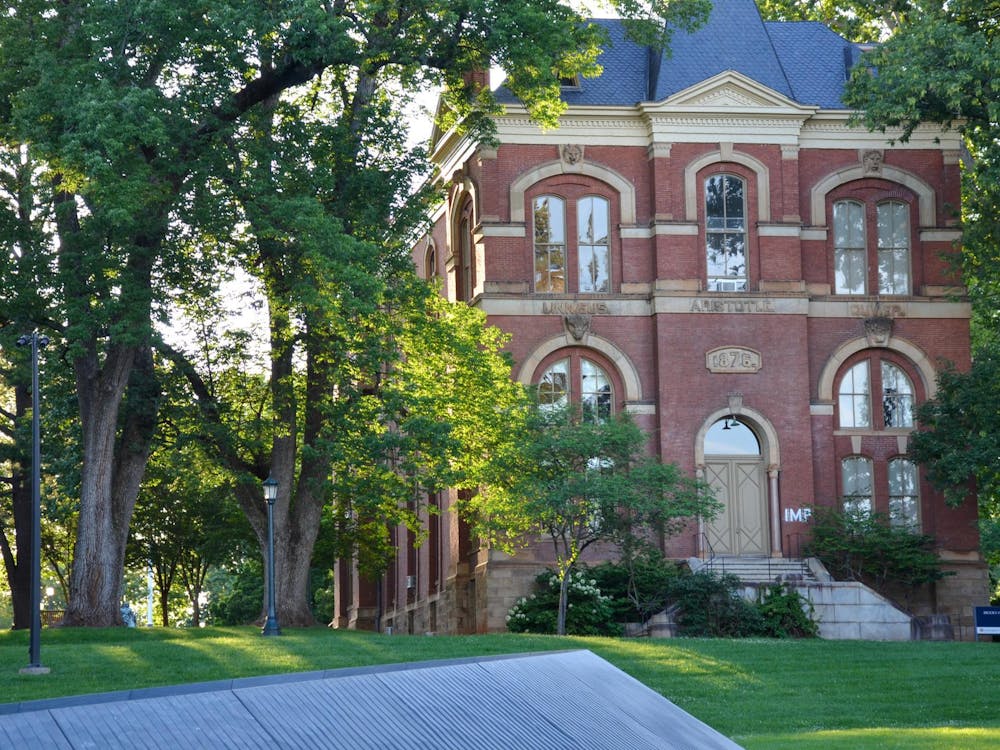"A woman came in with all of her children," said third-year Commerce student Amanda Eisel, a volunteer with the University's Madison House. "She pulled me aside and said, 'I just want to thank you so much. My house burned down, and this is the only Christmas my children have.'"
Eisel was talking about her experience with Madison House's Holiday Sharing program, a program that puts together gift packs for needy Charlottesville area families.
And Charlottesville has many: The city's poverty rate of 20 percent is significantly higher than Virginia's 11 percent average.
While many students associate the holiday season with gifts, eating delicious food, and visiting with family and friends, for less fortunate members of the Charlottesville community it is a time of struggling to get by.
The poverty rate is based on a three-year average of persons in poverty beginning in 1996 and is determined by the United States Census Bureau, which decides a family's economic status by taking into account factors such as size and composition.
The Bureau creates income thresholds using these factors; if a family's income is less than its threshold, it is considered below the poverty line.
According to 1989 statistics, Charlottesville would be considered a poverty area if more than 20 percent of the residents fell below the national poverty rate -- a level that the city barely misses.
"Anything over zero is high for me," said City Councilman Blake Caravati, referring to the city's poverty rate. But Caravati said Charlottesville makes a concerted effort to combat poverty.
"The city is very aggressive in providing social services," he said.
Charlottesville Mayor Virginia Daugherty said the statistics on poverty and homelessness in Charlottesville have remained about the same over the past few years, but Daugherty also said the city is taking steps to reduce this problem by concentrating its efforts on welfare reform.
The program has "successfully gotten a large number of people jobs, and offers services to help people retain jobs, such as daycare and transportation," Daugherty said. "However, the jobs are low-paying, and we need to continue to work on this program."
Charlottesville feels the strain of providing for the city's significant number of needy families during the holiday season.
A number of shelters and programs in the community are designed to help the less fortunate during the season.
Madison House, the University's community service organization sponsors its Holiday Sharing program, which receives the help of individuals as well as groups within the University and the surrounding area. Volunteers for this program prepare gift bundles of food and other necessities and give these packages to needy families.
Outside of the University, Charlottesville also has several service organizations, including the Salvation Army, whose volunteers are easily spotted with bells in hand and bright red kettles ready for donations.
Nationally, millions of dollars in aid go to help low-income families through the red kettle campaign each year. According to the Salvation Army, in 1996 alone almost 6.2 million people received toys, clothing and food through its charity program.
The Salvation Army also provides gifts for senior citizens in nursing homes and to patients who spend the holidays in the hospital. The Charlottesville branch provides short- and long-term rooms for those lacking a warm place to stay during the holiday season.
"The community largely supports this organization," Daugherty said.
Captain Mark Woodcock of the Salvation Army said that over $50,000 is raised through the red kettles in Charlottesville alone, but more help always is appreciated.
"We never have near enough volunteers to man the kettles. Our greatest need is volunteers. We usually start booking volunteers in September and October," Woodcock said.
In addition to the numerous red kettles around town, the Salvation Army has set up an Angel Tree in front of J.C. Penney's at Fashion Square Mall. Each angel on the tree has the name of a child, along with his or her wish list. People can pick an angel from the tree and then buy gifts for their sponsored child. Since the Salvation Army's slogan is "Need Knows No Season," it also provides for the more needy families throughout the year.
Other organizations, such as Hope House, which is sponsored by the Monticello Area Community Action Agency, and the Shelter For Help In Emergency, a shelter for battered women, provide help to the needy during the tough winter months as well. Hope House is federally funded, and is designed to help move the homeless into their own apartments over a set period of time. The Shelter for Help in Emergency, which receives state funds and local donations, can accommodate up to 20 people at a time.
Faith Bryant, who works at the Shelter For Help in Emergency said the holidays do not affect the number of women seeking refuge at the shelter, but even at normal times throughout the year, the shelter's resources are stretched.
"Sadly, there are more victims than spaces available," Bryant said.
She said Charlottesville residents can help out by volunteering from 5 to 9 p.m. each day, and can stay overnight as well.
Students and Charlottesville residents can help out by volunteering or simply donating money to aid these groups.
One group that takes donations from the community is called The Santa Fund, which is sponsored by The Daily Progress and the United Way of Charlottesville. This fund provides aid to poorer families, as well as gifts to impoverished children in the area.
Those doing holiday shopping on the Internet can visit The Hunger Site at www.thehungersite.com, which donates food to one hungry person every time someone clicks on a button. Each visitor is allowed only one click per day. Each sponsor of the site pays for one-fourth a cup of food, and all the sponsor money is given to the United Nations World Food Program. In the United States alone, more than 12 million people have made donations, and there have been over 18 million made throughout the world.






